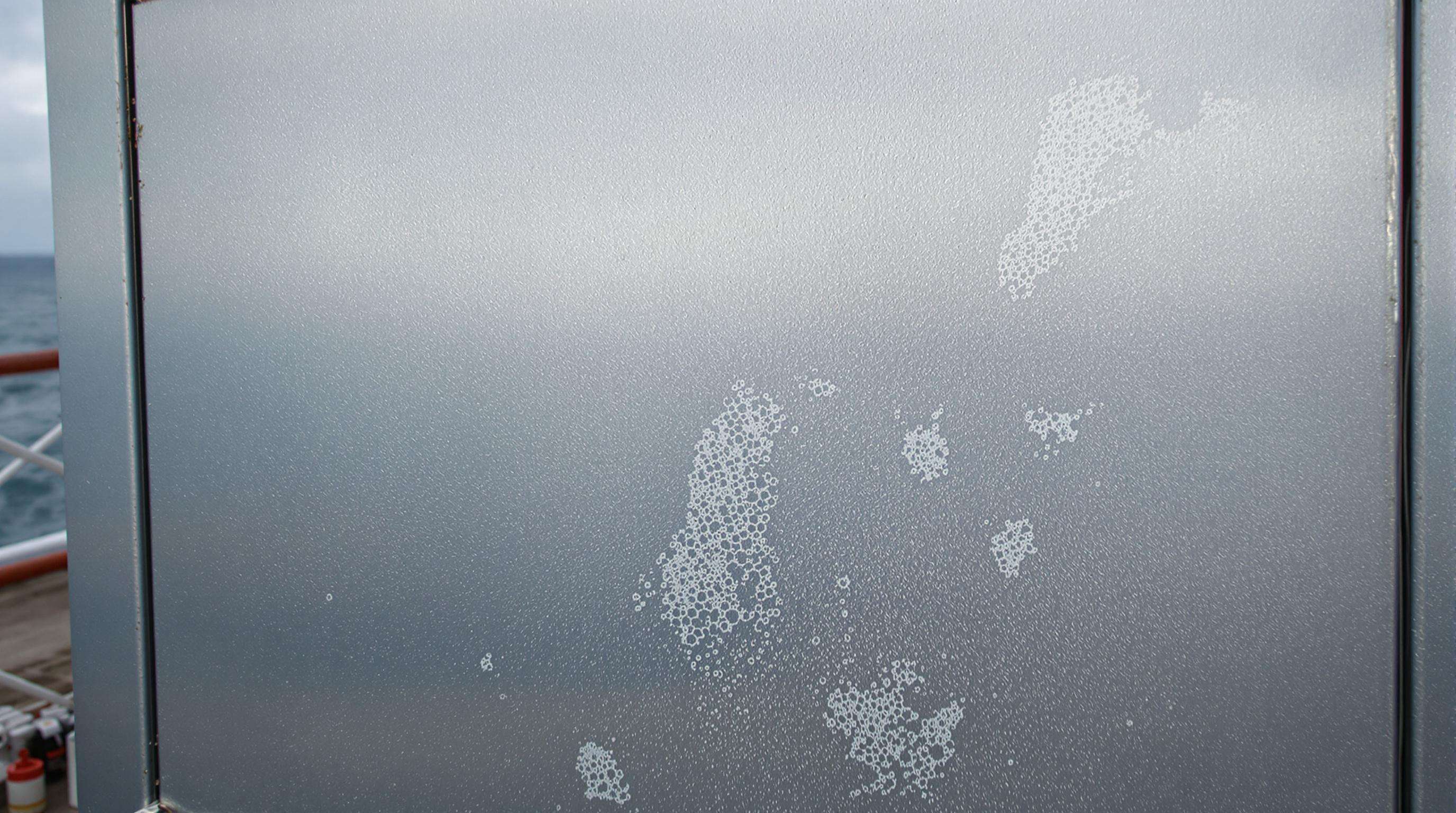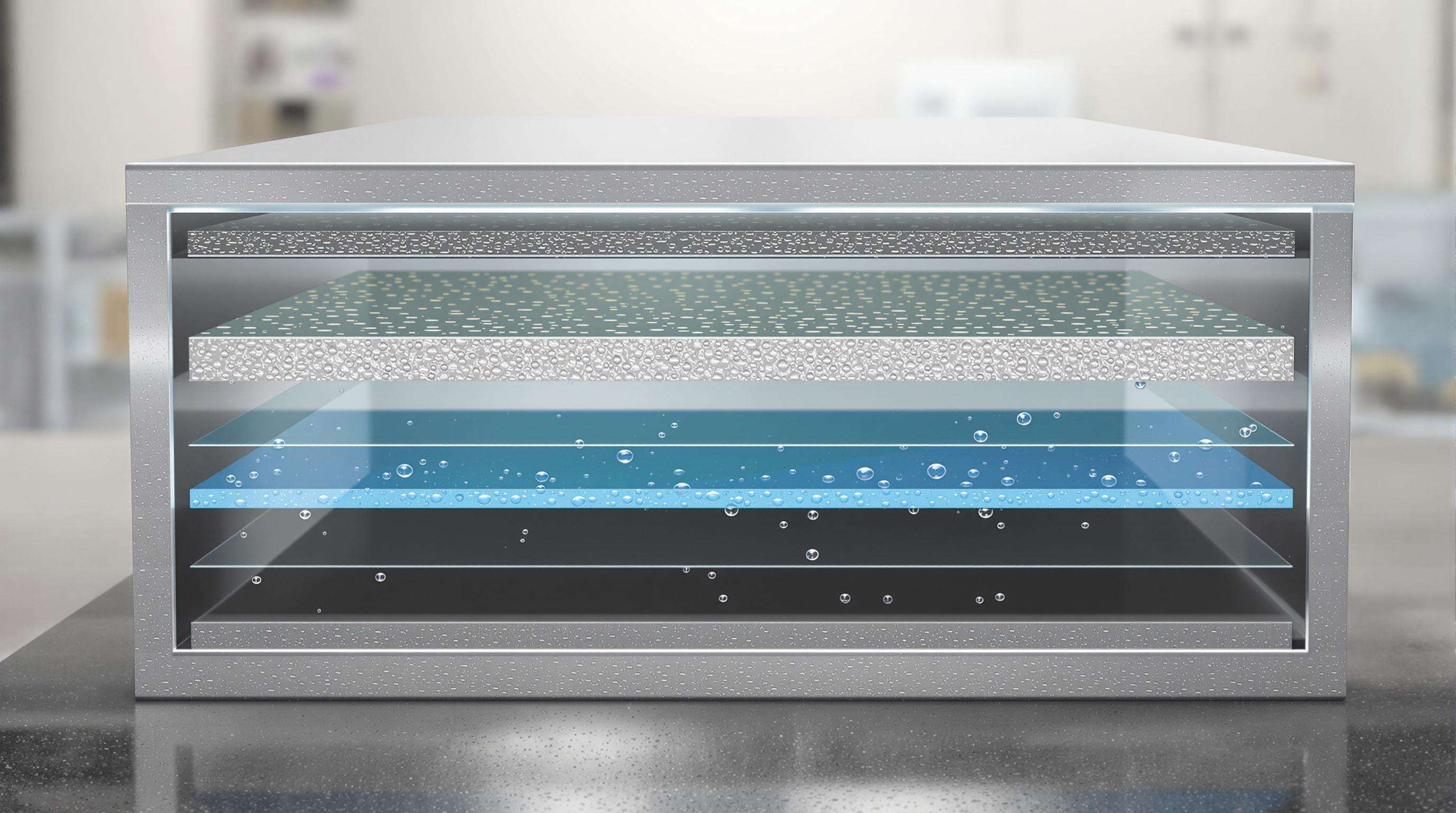Anti-Corrosion Steel Cabinets for Marine Industry Storage Challenges
The marine industry operates in one of the most demanding environments on Earth. From offshore oil platforms to cargo ships navigating vast oceans, marine operations face relentless exposure to saltwater, humidity, and extreme weather conditions. These harsh elements pose significant challenges for equipment storage, as corrosion can rapidly degrade materials, compromise structural integrity, and lead to costly downtime or replacements.
In this context, anti-corrosion steel cabinets have emerged as a critical solution for addressing storage challenges in the marine industry. This article explores the unique difficulties posed by marine environments, the role of anti-corrosion steel cabinets in overcoming these challenges, and the advanced technologies and materials that make these cabinets indispensable for marine applications.
The Marine Environment: A Hostile Setting for Storage
The marine environment is notoriously unforgiving. Saltwater, with its high chloride content, accelerates corrosion in metals, particularly steel, which is commonly used in storage solutions due to its strength and durability. Corrosion, often manifesting as rust, occurs when iron in steel reacts with oxygen and moisture, a process catalyzed by the presence of salt.
On ships, offshore platforms, and coastal facilities, equipment and supplies are constantly exposed to salt-laden air, spray, and humidity levels that can exceed 90%. These conditions create a perfect storm for material degradation.
Beyond corrosion, marine storage systems must contend with other challenges:
Vibration and Mechanical Stress: Ships and offshore platforms experience constant motion, vibrations, and mechanical stresses from waves and machinery. Storage solutions must be robust enough to withstand these forces without compromising their structural integrity or the safety of stored items.
Space Constraints: Space is a premium in marine settings, particularly on vessels where every square meter is carefully allocated. Storage cabinets must maximize space efficiency while maintaining accessibility and security.
Temperature Fluctuations: Marine environments often involve extreme temperature variations, from freezing conditions in polar regions to scorching heat in tropical waters. These fluctuations can exacerbate material fatigue and affect the performance of stored equipment.
Regulatory Compliance: The marine industry is subject to stringent safety and environmental regulations, such as those set by the International Maritime Organization (IMO). Storage solutions must comply with these standards, ensuring that hazardous materials, tools, or sensitive equipment are stored securely.
Given these challenges, traditional storage solutions, such as standard steel cabinets, often fall short. Corrosion can weaken cabinet structures, leading to failures that jeopardize safety and operational efficiency. To address these issues, anti-corrosion steel cabinets have become a cornerstone of modern marine storage systems.

Why Anti-Corrosion Steel Cabinets?
Anti-corrosion steel cabinets are specifically designed to withstand the harsh conditions of marine environments. Unlike standard steel cabinets, these specialized units incorporate advanced materials, coatings, and design features that protect against corrosion, mechanical stress, and environmental wear. Below, we explore the key attributes that make anti-corrosion steel cabinets ideal for marine applications.
Advanced Materials and Coatings
The cornerstone of anti-corrosion steel cabinets is the use of specialized materials and coatings that resist the corrosive effects of saltwater and humidity. Some of the most common approaches include:
Stainless Steel: Stainless steel, particularly grades like 316L, is highly resistant to corrosion due to its high chromium and molybdenum content. These elements form a passive oxide layer on the steel’s surface, which prevents rust even in saline environments. Stainless steel cabinets are widely used in marine settings for their durability and low maintenance requirements.
Galvanized Steel: Galvanization involves coating steel with a layer of zinc, which acts as a sacrificial anode, corroding in place of the underlying steel. This process significantly extends the lifespan of steel cabinets in marine environments.
Polymer and Epoxy Coatings: Advanced polymer or epoxy-based coatings provide an additional barrier against moisture and salt. These coatings are often applied through electrostatic or powder-coating processes, ensuring uniform coverage and long-lasting protection.
Aluminum Alloys: In some cases, cabinets are made from aluminum alloys, which are naturally corrosion-resistant and lighter than steel, making them ideal for applications where weight is a concern.
These materials and coatings are carefully selected based on the specific needs of the marine environment, ensuring that cabinets remain functional and visually appealing even after years of exposure.
Robust Design for Durability
Anti-corrosion steel cabinets are engineered to withstand the mechanical stresses of marine operations. Key design features include:
Reinforced Structures: Cabinets are built with reinforced frames and joints to resist vibrations and impacts. This is particularly important on ships, where constant motion can loosen components or cause structural fatigue.
Sealed Construction: To prevent water ingress, anti-corrosion cabinets often feature gasketed doors, watertight seals, and seamless welds. These design elements ensure that stored items remain dry and protected, even during heavy seas or storms.
Modular Configurations: Space efficiency is critical in marine settings. Anti-corrosion cabinets are often designed with modular shelving, adjustable compartments, and stackable configurations to maximize storage capacity while minimizing footprint.
Locking Mechanisms: Security is paramount in marine environments, where valuable equipment or hazardous materials may be stored. Anti-corrosion cabinets are equipped with robust, corrosion-resistant locking systems to prevent unauthorized access.
Compliance with Industry Standards
Marine storage solutions must adhere to strict regulatory standards to ensure safety and environmental compliance. Anti-corrosion steel cabinets are designed to meet or exceed standards set by organizations such as the IMO, the American Bureau of Shipping (ABS), and the International Organization for Standardization (ISO). For example:
Fire Resistance: Many cabinets are constructed with fire-resistant materials to protect stored items in the event of a fire, a critical consideration on vessels and offshore platforms.
Chemical Storage: Cabinets designed for storing hazardous materials, such as chemicals or flammable liquids, comply with regulations like the IMO’s International Maritime Dangerous Goods (IMDG) Code.
Load-Bearing Capacity: Cabinets are tested to ensure they can support heavy loads without deforming, a necessity for storing heavy tools or equipment.
By meeting these standards, anti-corrosion steel cabinets provide peace of mind for marine operators, ensuring that their storage solutions are both safe and compliant.
Applications in the Marine Industry
Anti-corrosion steel cabinets are used across a wide range of marine applications, each with its own unique storage challenges. Below are some key examples:
Offshore Oil and Gas Platforms
Offshore platforms operate in some of the most corrosive environments imaginable, with constant exposure to saltwater and extreme weather. Anti-corrosion steel cabinets are used to store critical equipment, such as drilling tools, sensors, and safety gear. These cabinets protect against corrosion while ensuring that equipment remains accessible and secure, even in high-vibration environments.
Cargo and Container Ships
Cargo ships transport goods across oceans, often carrying sensitive equipment or hazardous materials that require secure storage. Anti-corrosion cabinets are used to store navigation tools, maintenance equipment, and emergency supplies, protecting them from the corrosive effects of saltwater and humidity.
Naval Vessels
Military vessels, such as destroyers and submarines, require storage solutions that can withstand the rigors of extended missions in harsh conditions. Anti-corrosion steel cabinets are used to store weapons, electronics, and medical supplies, ensuring that critical equipment remains operational in any environment.
Research and Exploration Vessels
Marine research vessels often carry delicate scientific instruments that must be protected from corrosion and mechanical damage. Anti-corrosion cabinets provide a secure, climate-controlled environment for storing these instruments, ensuring accurate data collection and analysis.
Coastal Facilities
Ports, docks, and coastal warehouses face similar challenges to those at sea, with constant exposure to salt air and humidity. Anti-corrosion steel cabinets are used to store tools, spare parts, and documentation, maintaining their integrity in these demanding conditions.
Benefits of Anti-Corrosion Steel Cabinets
The adoption of anti-corrosion steel cabinets offers numerous benefits for marine operators:
Extended Lifespan: By resisting corrosion, these cabinets last significantly longer than standard steel cabinets, reducing replacement costs and downtime.
Enhanced Safety: Robust construction and secure locking systems ensure that equipment and hazardous materials are stored safely, minimizing risks to personnel and operations.
Cost Savings: While anti-corrosion cabinets may have a higher upfront cost, their durability and low maintenance requirements result in significant long-term savings.
Operational Efficiency: Modular designs and easy access improve workflow, allowing crews to retrieve tools and equipment quickly and efficiently.
Environmental Protection: By preventing leaks and ensuring compliance with regulations, these cabinets help protect the marine environment from contamination.
Challenges and Considerations
While anti-corrosion steel cabinets offer significant advantages, there are some challenges and considerations to keep in mind:
Initial Cost: High-quality materials and coatings can make these cabinets more expensive than standard alternatives. However, the long-term savings often justify the investment.
Weight Considerations: Stainless steel and reinforced designs can add weight, which may be a concern on vessels where weight distribution is critical. Lightweight alternatives, such as aluminum alloys, can address this issue.
Maintenance Requirements: While anti-corrosion cabinets require less maintenance than standard cabinets, regular inspections and cleaning are still necessary to ensure optimal performance.
Customization Needs: Marine operations vary widely, and off-the-shelf cabinets may not always meet specific requirements. Working with manufacturers to customize solutions can address this challenge.

Future Trends in Marine Storage Solutions
As the marine industry evolves, so too will the technology behind anti-corrosion steel cabinets. Some emerging trends include:
Integration with IoT: The Internet of Things (IoT) is poised to revolutionize marine storage, with smart cabinets that provide real-time data on inventory levels, environmental conditions, and maintenance needs.
Sustainable Manufacturing: As environmental regulations tighten, manufacturers are likely to prioritize sustainable materials and production processes, reducing the carbon footprint of anti-corrosion cabinets.
Lightweight Composites: Advances in composite materials may lead to cabinets that combine the corrosion resistance of stainless steel with the lightweight properties of polymers, addressing weight concerns in marine applications.
Automated Storage Systems: In large-scale marine operations, automated storage and retrieval systems integrated with anti-corrosion cabinets could improve efficiency and reduce labor costs.
Conclusion
Anti-corrosion steel cabinets are a vital solution for addressing the unique storage challenges of the marine industry. By combining advanced materials, robust design, and compliance with stringent regulations, these cabinets provide durability, safety, and efficiency in some of the harshest environments on Earth.
As technology continues to advance, anti-corrosion cabinets will play an increasingly important role in supporting the marine industry’s operational and environmental goals. For marine operators seeking reliable, long-lasting storage solutions, investing in anti-corrosion steel cabinets is not just a choice—it’s a necessity.

 EN
EN






































